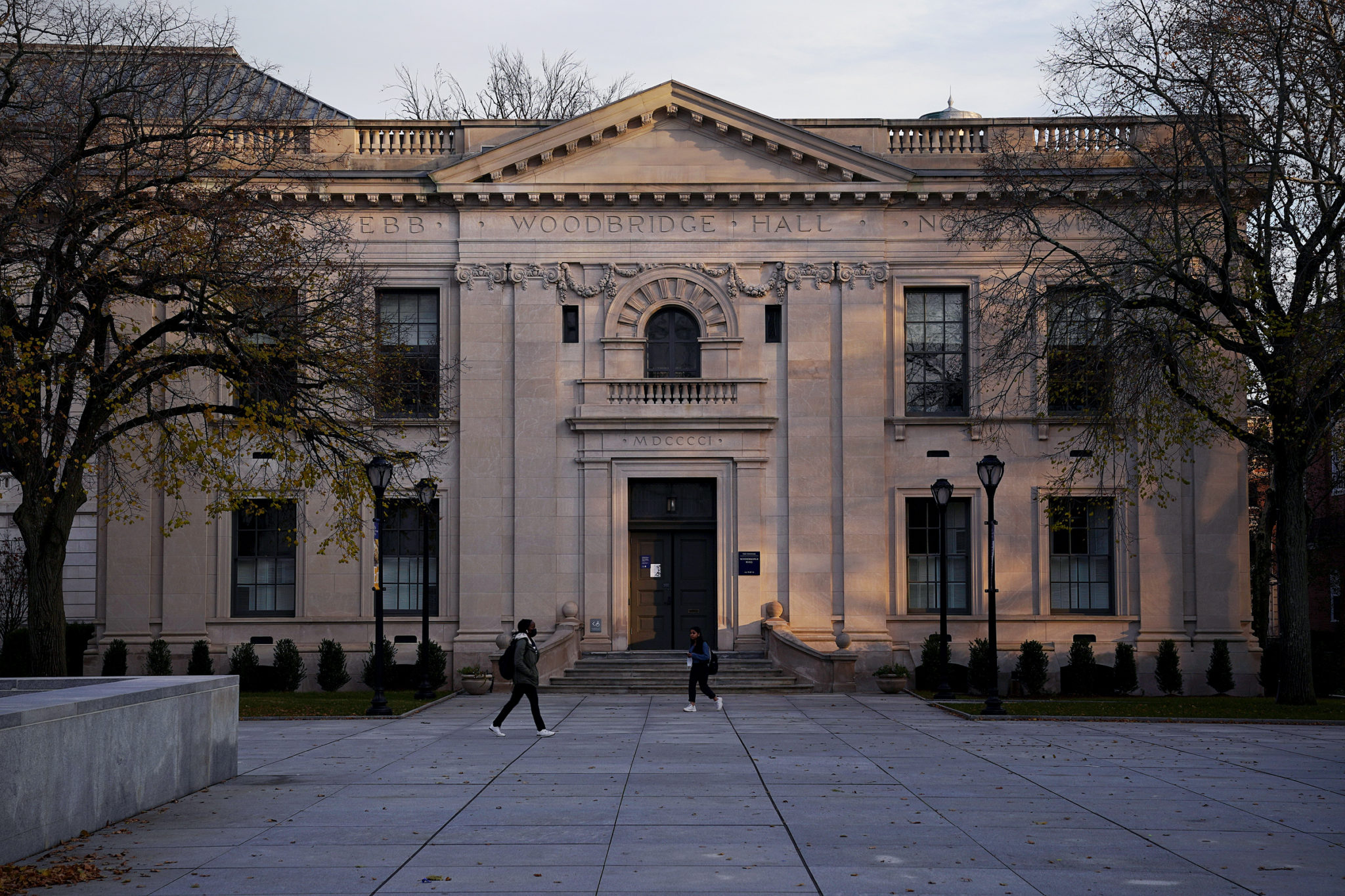Yale endowment soars to record $42.3 billion
Following record endowment growth, the University has unveiled new spending commitments and curbed its international investments.

Tim Tai
The 2021 fiscal year saw Yale’s endowment increase by $11.1 billion, representing the third highest rate of return since 1970.
The University’s endowment soared up from $31.2 billion during the 2020 fiscal year, and was in line with that of its peer institutions – including Harvard, Dartmouth, and the Massachusetts Institute of Technology – which also saw record-breaking return rates. Spending from the endowment contributed to approximately 35 percent of Yale’s $4.3 billion operating budget.
“It was an extraordinary year for the endowment, which will benefit the Yale community now and for generations to come,” Matt Mendelsohn, Yale’s Chief Investment Officer, announced in a press release. “While we are pleased with this gain, we define success over longer periods of time, measured by our ability to provide stable and growing support to the university so that it can carry out its mission.”
The University invests the money from its endowment across a diverse set of asset classes, such as absolute return, public equities and venture capital – the latter of which has increased in the midst of a record-breaking year for venture capital in the United States.
“Yale’s venture capital portfolio has grown over time through a combination of strong performance and increased new investment,” Danny Otto, associate director of the Yale Investment Office, wrote in an email to the News. “We view the opportunity to harness novel technologies to build new businesses across all sectors of the economy as a generational one and have been investing accordingly.”
22.6 percent of Yale’s endowment was invested in venture capital, which is approximately 14.9 percent more than the average university. While venture capital investments tend to generate greater risk, with 75 percent of venture-backed companies failing to provide a return to investors, the 2020 endowment report saw a return of 21.3 percent in its venture capital portfolio.
The investment growth comes against the backdrop of obstacles, such as COVID-19, which have affected the University’s revenue stream.
“[Something] that’s going on this year is COVID: the finances of the University have been impacted,” Murphy said. “Some revenue sources have been depressed because of not being able to do things in person. So, for instance, we haven’t been able to have performances and athletic events with full capacity crowds. That’s changing, we certainly hope it’s going to stay that way.”
In spite of these instances, net financial gains have led the University to reveal several new spending commitments.
Among these are an elimination of the student income contribution, a new independent School of Public Health supported by $250 million in endowment funds and a $52 million increase in Yale’s voluntary contribution to the city of New Haven.
Record endowment growth has also led the University to expand its science and engineering offerings.
Among these plans are the addition of 45 faculty positions in its STEM disciplines, as well as redesigned buildings on Hillhouse Avenue. The School of Engineering and Applied Sciences, or SEAS, will be led by its own dean and operate as a “distinct budgetary unit”, according to a press release announced by Yale administrators. Interdisciplinary collaborations, including a new master’s degree in Personalized Medicine & Applied Engineering offered by the Graduate School of Arts and Sciences, SEAS and the Yale School of Medicine, will also start this summer. These initiatives were inspired by the University’s focus on the Sciences which was included in its “For Humanity” capital campaign goals as well.
“The excitement in various fields of study across the curriculum suggests that the moment is ripe for bringing to Yale faculty who will only make us an even stronger university,” University President Peter Salovey told the News. “Our endowment is doing what you would hope endowments do, and that is to grow. And finally, the overall operating budget of the University is in good shape. All three of those factors, plus the moment for scholarship and research that this represents, suggest that this is the right time to undertake this expansion.”
Increased political tension across the world has also affected Yale’s investments in its endowment.
In late 2021, Yale held $362 million in Vanguard’s emerging market exchange-traded fund, which allocates 2.9 percent of its holdings, or $10.5 million, in Russian assets. Following global international sanctions, Russian stocks were wiped from the index – erasing Yale’s financial connection to Russia.
“It is very important to symbolically show support for Ukraine and to divest money, even small money from Russia, because every instance counts,” Oleksii Antoniuk ’24 said. “It is much easier to enforce this divestment from Russia when everyone does.”
In addition, criticism surrounding the systemic oppression of Uyghur Muslims by the Chinese government has further caused members of the Yale community to call on the University to investigate its holdings into Chinese investments. The University’s Advisory Committee on Investor Responsibility, or ACIR, began investigating earlier this year whether certain companies in China could be deemed ineligible for Yale’s investment in light of government human rights abuses.
“Regardless of the financial imperative to invest in Chinese market funds, Yale should abide by a basic moral standard,” Rayhan Asat, a human rights lawyer and former Yale World Fellow, told the News. “That moral standard demands that even, and especially, when circumstances encourage and reward harmful investments, we must seek other solutions. There is always a choice, and Yale must make the right one based on its principles, even if it is not easy.”
The University’s 2021 return rate was the highest it has been in two decades.



